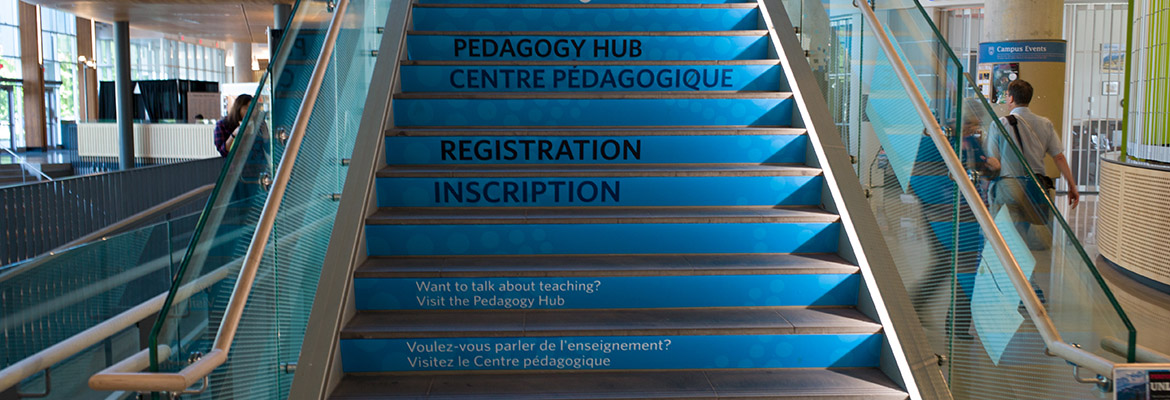For the 88th annual Congress of the Humanities and Social Sciences, UBC introduced the Pedagogy Hub. This new programming brought together hundreds of faculty, graduate students, and postdoctoral fellows from across disciplines to explore diverse topics in teaching and learning.
Congress, which was hosted at UBC from June 1 to 7, is one of the largest interdisciplinary conferences in Canada.
“Among all of those who come to Congress, from all of our different disciplines, the one thing that we have in common is that nearly all of us teach as part of our jobs,” explains Tiffany Potter, Professor of Teaching and Associate Head of Curriculum & Planning in the Department of English. Potter organized the Pedagogy Hub alongside faculty and staff from the Centre for Teaching, Learning and Technology (CTLT) and the Faculty of Arts.
“We wanted to recognize teaching as a site of intersection, and as a place where we can all have conversations across disciplines and across geographies,” Potter says.
Developing the idea with Congress Academic Convenor Laura Moss, Potter pursued a plan for teaching-related programming in collaboration with the CTLT’s Christina Hendricks, Academic Director, and Jeff Miller, Senior Associate Director, Projects and Faculty Partnerships.
Past iterations of Congress have not included much formal programming around teaching, explains Potter. “The theme of Congress this year was ‘Circles of Conversation’. It seemed like exactly the right moment to emphasize conversations about teaching.”
With the support of Moss and funding from UBC, the team brought together several related proposals, including sessions on experiential learning, language education, and pedagogies in Asian Canadian Studies. Together, they formed the Pedagogy Hub.
“It was a collaboration between many people with different focuses on teaching and learning,” Hendricks says, “so there was a nice range of events throughout the week.”
Among those events were coffee talks about hands-on teaching strategies, daily spotlight sessions, and a showcase of an augmented reality assignment. More than 50 presenters led sessions on topics ranging from teaching innovations, educational technology, classroom climate, and the impact of current work in the Scholarship of Teaching and Learning.
In addition to the formal programming, the “Conversations Room” was a drop-in space where people could gather in between sessions and have candid conversations about teaching.
“This space where people could informally come and chat was really effective,” says Hendricks. “You got to meet new people who were interested in teaching and learning—people from various disciplines and places came together who may otherwise not have had a chance to do so.”
One of the most popular features of the room was the Ask and Answer discussion boards, where attendees were invited to jot down their questions about teaching, or provide responses to other questions.
Potter and Hendricks hope the Pedagogy Hub is just the start to further conversations around teaching and learning at events like Congress.
“I hope that people were able to connect with others…who share similar interests, who they can continue to talk to, potentially collaborate with, and learn from,” Hendricks says.
Potter adds, “For us, that’s a really important legacy of the Pedagogy Hub…the continuity of that experienced-based and research-informed conversation, and that recognition that we have a lot to share with each other. If that can be a legacy of UBC’s programming at Congress this year, that would be pretty exciting.”

